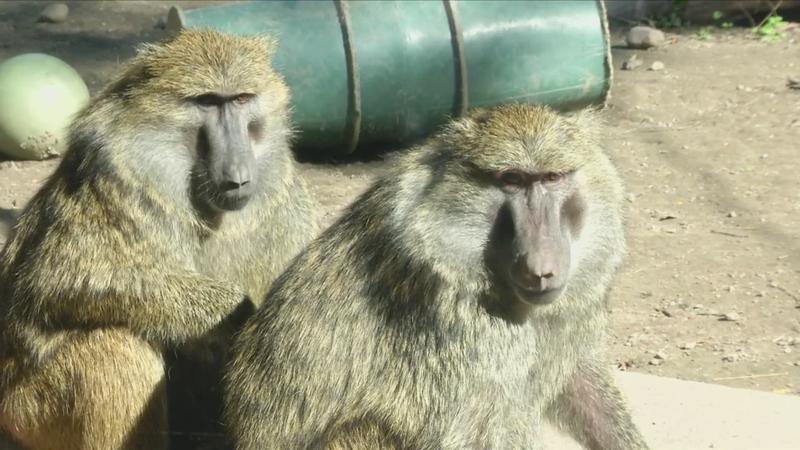Lions, and tigers and snow leopards… oh, my! Seneca Park Zoo animals get vaccinated
[anvplayer video=”5062827″ station=”998131″]
ROCHESTER, N.Y. (WHEC) — Lions, and tigers and snow leopards… Oh, my! Those are the animals that got COVID vaccines at the Seneca Park Zoo. News10NBC’s Jenny Ly explains why the zoo decided to protect what they deem are at-risk animals.
“Especially in older animals just like what we see in people, when animals are older they develop secondary diseases that make COVID infections worse, and we’re just trying to provide that extra level of care,” said Louis DiVincenti, assistant zoo director at Seneca Park Zoo.
When it comes to animal care and conservation at the zoo, the veterinarian helps call the shots.
“We decided to vaccinate our lions, our tigers, our lynx, our snow leopards and baboons,” DiVincenti said.
After learning about COVID positive cases at other zoos across the country, the medical staff decided that employees and visitors are not the only ones who need protection from the virus.

[News10NBC]
“We decided to vaccinate them based on what we learned about the susceptibility of species at other zoos so tigers, lions – all the big cats basically have gotten infections at other zoos as well as some of the primates, like great apes,” he added.
Not just furry mates and felines were vaccinated. Our aquatic friend – the otter – as well as our tall friends, like the giraffes, were safeguarded, too.
“Our giraffes are part of a public feeding program, so they have a lot of exposure to the public. We felt it was important for us to protect them as well,” DiVincenti said.
The assistant zookeeper said the decision to vaccinate giraffes was based on a study that indicated that the tall spotted animals have some susceptibility to the coronavirus based on a molecular marker to gain access to cells. He also says the vaccine that the animals received is much different from that of a human COVID-19 vaccine.
“It’s a different vaccine than it is in people, so the biology of the vaccine is totally different. It’s more like a traditional vaccine, so more like a flu shot vaccine where the side effects are much lower and less prevalent than the mRNA vaccines that we got so we didn’t see any significant adverse effects,” DiVincenti explained.
The zoo says it just finished the vaccine series about 10 days ago for the at-risk animals and still has about another half of them to go.